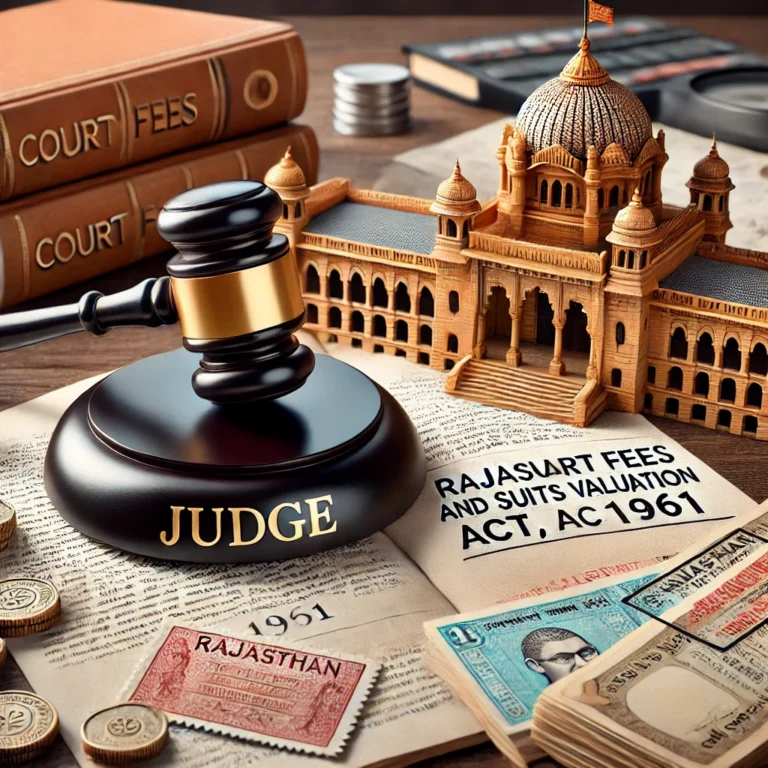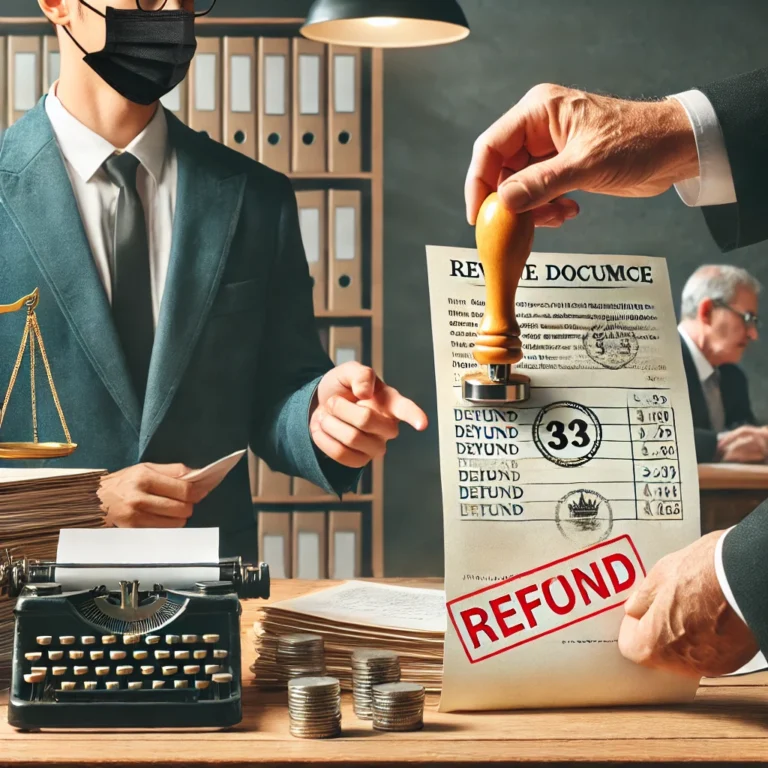
Section 56 & 57: Payment of Deficit Court Fee and Security in Probate Cases
Payment of the Right Fee for Probate or Letters of Administration (Section 56)
When an applicant applies for probate or letters of administration, they are required to pay a court fee depending on the value of the estate of the deceased. There are some situations where the amount paid is less than the required fee because either there was an error in it or some portion of the estate was unknown then. Section 56 of The Rajasthan Court Fees and Suits Valuation Act, 1961 clarifies what will happen in those circumstances.
If the executor or administrator discovers that there has been an error and some aspect of the property was not included in the assessment, they can make an application to the Collector within six months of the error being discovered. They will be required to pay the difference between the proper fee and the fee that was actually paid. If the Collector is convinced that the error was bona fide and there was no dishonest intention to cheat or delay the payment, he will stamp the letters of administration or probate in proper form.
In case the executor or administrator fails to pay the shortfall amount within six months, he will be liable to pay a penalty of five times the amount that is lacking. If no application is filed within six months, and the Collector discovers that a wrong fee has been paid, the individual will still be required to pay the shortfall fee with a penalty of up to five times the amount. If, by way of an official investigation under Section 54 or Section 55, it is found that the fee deposited was inadequate, the proper stamp duty will be levied and, if the under-valuation was not made in good faith, a further penalty will be incurred. The Board of Revenue can remit or mitigate these penalties in special cases.
For More Updates & Regular Notes Join Our Whats App Group (https://chat.whatsapp.com/DkucckgAEJbCtXwXr2yIt0) and Telegram Group ( https://t.me/legalmaestroeducators ) contact@legalmaestros.com.
For instance, if an executor pays an initial court fee for a ₹10 lakh estate but subsequently discovers that the value is actually ₹15 lakhs, they need to pay the deficit fee for the extra ₹5 lakhs within six months. If not, they might have to pay a fine many times the lost amount.
For More Updates & Regular Notes Join Our Whats App Group (https://chat.whatsapp.com/DkucckgAEJbCtXwXr2yIt0) and Telegram Group ( https://t.me/legalmaestroeducators )
Security Before Paying the Deficit Fee (Section 57)
Where an administrator must pay an additional fee due to a previous underestimation, the law demands additional security. According to Section 57, the Collector is not allowed to stamp the letters of administration with the proper fee until the administrator provides adequate security to the court that originally granted it. The amount of security should be equivalent to what would have been needed if the total value of the estate had been ascertained at the time of the initial application.
This provision prevents the administrator from escaping their financial obligation. For instance, if an administrator had initially reported an estate’s worth to be ₹8 lakhs but later it turned out to be ₹12 lakhs, they first need to deposit the security required by the court before adjusting the deficit fee.
Sections 56 and 57 are safeguards for the legal process ensuring that the right fee is being paid and ensuring that fraud and manipulation in valuation of property at probate times are avoided. These sections preserve fairness and honesty in dealing with the estates of deceased persons.






